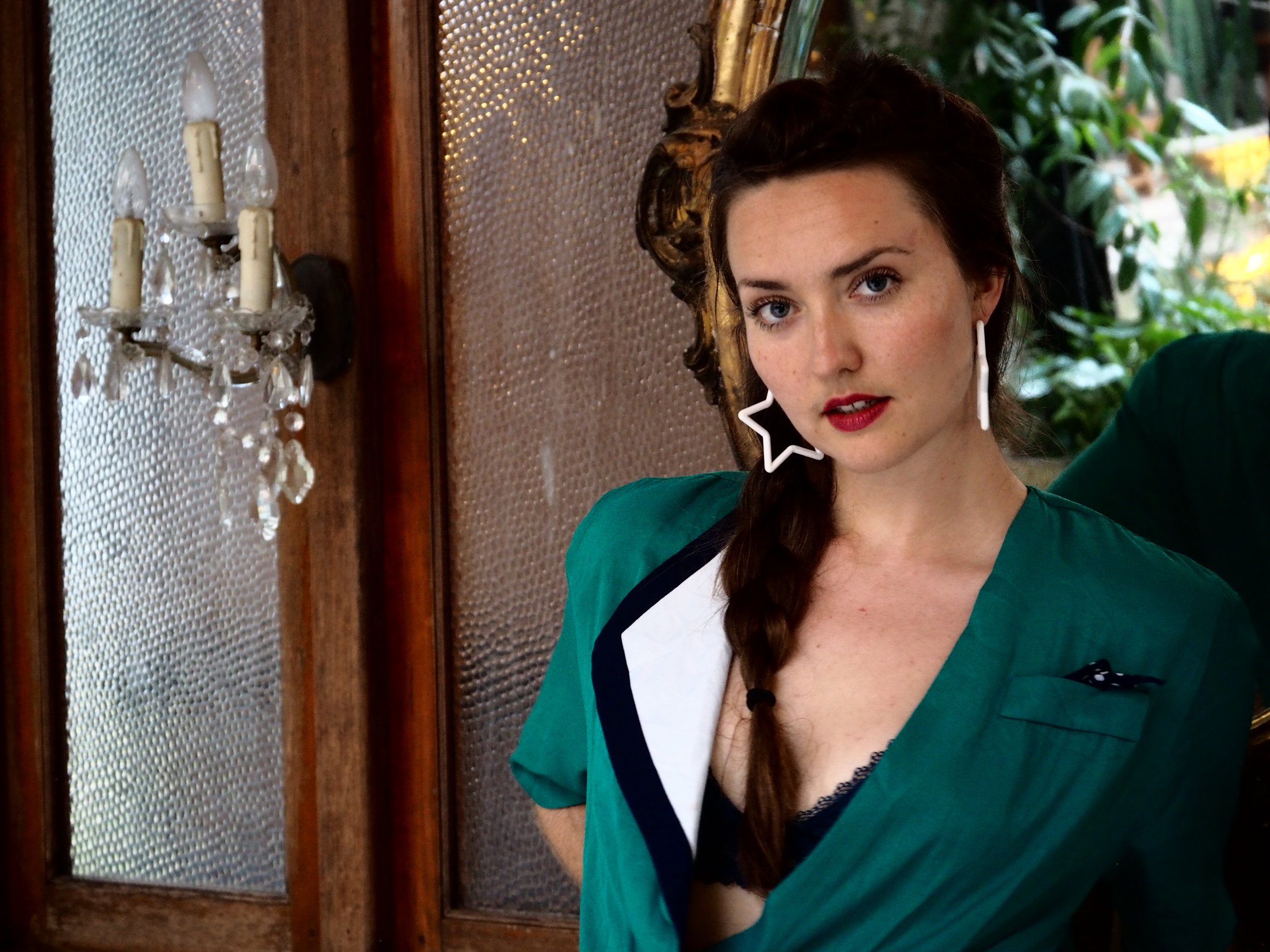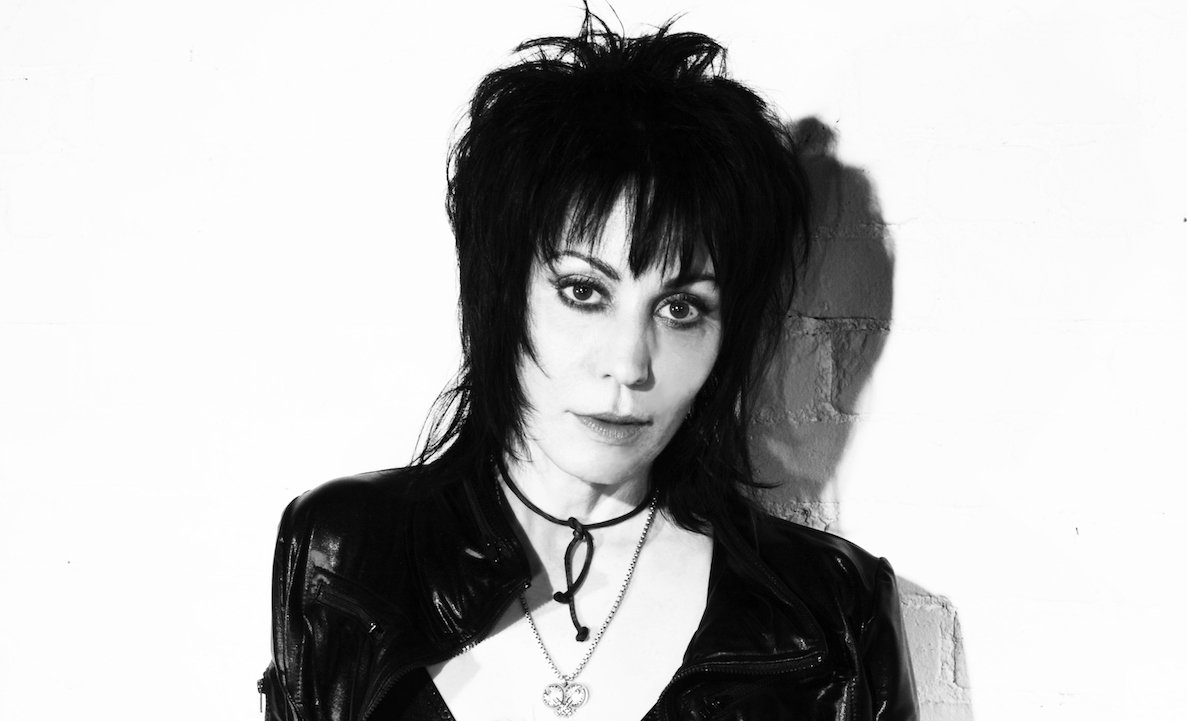Nicholas Payton Traces the Birth of Pop Culture Back to Satchmo

The trumpeter made himself a hashtag to help people understand the body of thought behind "Afro-Caribbean Mixtape."
[Updated] Nicholas Payton has made himself an Internet creation. He certainly had an acclaimed career without the Interwebs, but he has adapted himself and his art well to its modes, preferences, and bricolage-like habits. He has become a brand, so that everything he says or does is an extension of #BlackAmericanMusic or #BAM. That brand reflects his evolving relationship to New Orleans jazz, which is more musically complicated than it was when he recorded Gumbo Nouveau (1996), Doc Cheatham & Nicholas Payton (1997) or Dear Louis (2001).
He hasn’t turned his back on it or the artists who made it. On Tuesday, Payton wrote on Instagram:
We owe an incredible debt to Armstrong because he really is the fulcrum of American music. Certainly there were masters before him, but everything got funneled and distilled through him to what we have now—from Swing to Rock, from Funk to Hiphop. He changed the feel. It’s one thing to have your own feel, but it’s an entirely different thing to change the conception of what a quarter note feels like.
Armstrong is crucial to this year’s Afro-Caribbean Mixtape, but so is the Ohio Players and Parliament-Funkadelic keyboard player Junie Morrison and Cuban trumpeter Manuel “Guajiro” Mirabal. Payton’s work and his public persona became more clearly provocative in 2011 when he asserted that his music came from more than just jazz, and that the word “jazz” marginalized a whole body of music. In a series of Tweets, he declared jazz dead among other things in a stream of Twitter consciousness that many jazz fans took personally. Payton collected the Tweets into a blog post titled “Why Jazz Isn’t Cool Anymore,” which helped the ideas reach farther and outrage more people. At the same time, he worked to make his own music more clearly personal, more electric, and more reflective of his own interests and priorities. None of his releases since 2011’s Bitches have backed away from influences that shaped his music from the start, but those that weren’t part of the jazz world became obvious as well.
Nicholas Payton and Afro-Caribbean Mixtape will play Satchmo SummerFest’s Cornet Chop Suey Stage at 3 p.m. Friday, and even though Armstrong’s influence is less obvious on Afro-Caribbean Mixtape, he remains crucial to Payton’s music. “Although Michael Jackson is referred to as the ‘King of Pop,’ Louis Armstrong was the first pop star,” Payton says, and he refers to Armstrong on Twitter as the #kingofarchaicpop. “That idea didn’t exist chiefly because the medium didn’t exist by which people all over the world could be impacted by the same piece of art at the same time. This new voice and style coincided with a new technological advancement allowed for that to be disseminated all over the world in the phonograph player, much like Michael’s meteoric rise to fame not known before was assisted with the new medium in the music video.”
Afro-Caribbean Mixtape is a two-CD set because it had to be, Payton says. He had almost eight hours of music that he honed down to roughly two hours that trace today’s pop music and pop culture back to the slaves in Congo Square. “The things that you would find on a Rihanna or a Drake album still owe an incredible debt to Louis Armstrong,” he says. Hip-hop and DJ culture is as central to the project as any music out of New Orleans as sampled voices speak over instrumental passages, and tracks are remixed or presented in multiple forms without any hierarchy.
The world of pop music and pop culture isn’t one he has stayed close to. Much hip-hop and pop today, Payton says, “is getting away from this rhythmic code, this African tribal DNA that I’m trying to show the connection of.” Still, it’s foundational music for him. “I’m a child of the hip-hop era. It was the new music created during my childhood. It impacts everything I do in the same was that New Orleans music does. It’s in the fabric of my voice.”
Afro-Caribbean Mixtape is Payton’s most effective argument for #BAM. He hasn’t abandoned the jazz artists who influenced him, and people who don’t read anything about what he’s been up to could listen to it and hear a jazz-funk hybrid. But amidst the electric pianos, trumpets and DJ scratches, the voices of Max Roach, Miles Davis, Duke Ellington, and African-American intellectuals including Dr. Greg Kimathi Carr and Johnnetta Cole filter through, articulating the ideas that helped shape Payton’s Black consciousness. Those voices of Black musicians and intellectuals present the historical roots of Payton’s #BAM concept, and they underline the idea that his music is a community project—not only made by musicians but the community of people who have carried this cultural dialogue forward. Payton admits that those sampled voices make Afro-Caribbean Mixtape his most overtly political album since the thoughts are literally merged with the music, but they’re also true to the musical concept.
“It's a part of this mixtape idea where you take this pastiche and you flip it, so it wouldn't effectively be a mixtape without those borrowed elements,” he says.
Payton has been writing about #BAM since 2009 he says, though the Tweets and accompanying blog post in the fall of 2011 put the idea on the map. Today, he’s surprised that those posts got the heat that they did as opposed to some of the other things he had written, but at the time he felt alone being vocal about matters of race, oppression and colonialism. “Now it’s something that people are talking about on a daily basis,” he says. Some musicians pushed back along with those who were uncomfortable to have race foregrounded in a music conversation even though, Payton says, they knew jazz was created by Blacks. “That did kinda shock me.”
Eventually, most musicians came to understand that he wasn’t challenging jazz as a music but jazz as a word. “I was talking about the constructs that exist surrounding the music that are false, not the actual style of playing or the artists who play or played so-called jazz,” he says. “The constructs that distort the narrative around the music and consequently affect the music. I was trying to save that which they love, not trying to destroy it.”
Payton put those ideas into the world 140 characters at a time or a cluster of hashtags, which means he ran and continues to run them into an online ecosystem that thrives on outrage. He has banged into the same online world that felt threatened by the assertion that #BlackLivesMatter, and he has run into the downside of Twitter as an outlet for ideas. Its reach means ideas can go to people and places Payton couldn’t anticipate, but they also travel in truncated forms that people are only now truly learning to read. Payton’s Tweets are often taken at face value as dead serious, but there’s a playful undercurrent to many of his posts. “A lot of times I’m joking or being light-hearted,” he says.
“I’ll never understand why people get that offended by something. You would have to call me out by name or talk about me and my momma for me to get angry about anything you post.”
For more on the ideas behind Payton's use of the word "mixtape" and his inclusion of a DJ in his live show, see a story we did during Jazz Fest.
Updated August 11, 9:25 a.m.
Payton played Satchmo SummerFest on Friday, not Saturday. The text has been changed to reflect this correction.






